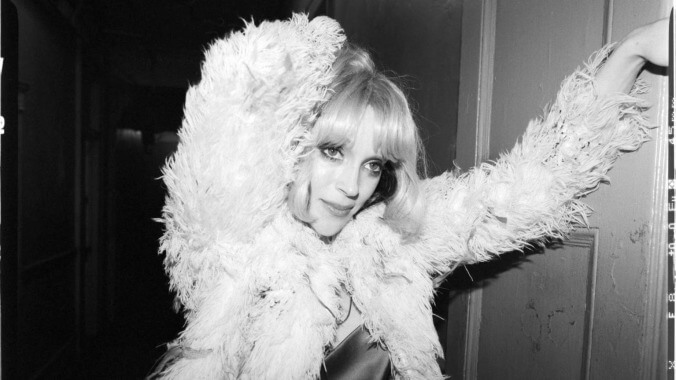St. Vincent saunters into the past with the rakish tales of Daddy’s Home

There’s a self-conscious artifice that needs to be embraced in order to fully enter the world of St. Vincent’s dark and compelling new album, Daddy’s Home. In and of itself, this isn’t necessarily anything new: Annie Clark, the multi-hyphenated artist now six albums deep into her career under the St. Vincent moniker, has always had a chameleonic muse, adopting different personas and perspectives in her songwriting, most recently with the high-gloss, electronic-infused pop of 2017’s Masseduction, where she sometimes sounded as though she were broadcasting from a near-future dystopia. But with this latest record, she’s gone the opposite direction, back into the past, to conjure a vision of a time she’s only known through music and stories—the early ’70s in New York City. It’s a meticulous musical diorama, replete with striking figures and colorful, lurid narratives that blend reality and fiction, to engrossing effect. If Stories From The City, Stories From The Sea was PJ Harvey’s astute look at turn-of-the-millennium NYC as experienced through an outsider’s perspective, Daddy’s Home is an exacting facsimile of a world that mostly existed through mythmaking; a city long vanished, now lushly reassembled from the mind of an exacting artist.
Taking inspiration from the real-life release of her father from prison after nearly a decade behind bars, Clark dove into the music and culture of his youth, and the results play out like a 1975 jukebox of New York grooves, albeit filtered through the talents of a musician who has spent the better part of two decades reworking and refining a heady collage of influences into her jagged, insular output. Swaggering soul, touching torch songs, and even the retro sounds of orchestral pop from 50 years ago all come into the mix, swirled together into a begrimed collection of songs about no-good lovers and all-night benders. For maybe the first time, this is music that isn’t instantly identifiable as that of St. Vincent, though the closer you listen, the more her distinctive songwriting style and knack for idiosyncratic arrangements emerge. “My Baby Wants A Baby” and “… At The Holiday Party,” for example, at first sound like pure old-school soul-pop and R&B-laced Americana, respectively, like Clark’s taken on the role of Gladys Knight or Diana Ross, complete with some Pips and Supremes to second that emotion. But when the wah-wahs and wails erupt into the former’s coda and the Steve Cropper-esque guitar licks dip in and out of the latter, St. Vincent’s presence makes itself unmistakably known.
Still, it’s remarkable just how fully Daddy’s Home remains immersed in the styles and songs of a previous generation. Whereas before, Clark’s musical lineage and obvious artistic debt to David Bowie was wielded for forward-looking purposes, here it reaches back, scooping up Young Americans-era sounds and fusing them with the downtown funk and soul of American musicians like Al Green—or even Parliament—in an attempt to capture what made the music of that era so vital. If lead single “Pay Your Way In Pain” nonetheless retained some clear aspects of Clark’s previous electronic beats and bounces, the rest of the album sheds her more immediate sonic touchstones in favor of embracing an almost outré commitment to the nightclub acts of yesteryear. “Down And Out Downtown” conjures visions of Bill Withers at last call, while the title track is as spacey and funky as George Clinton.








































